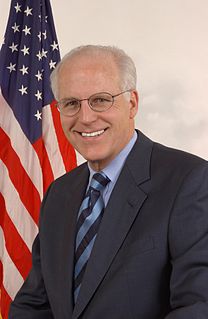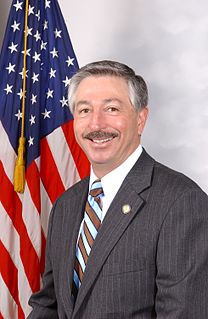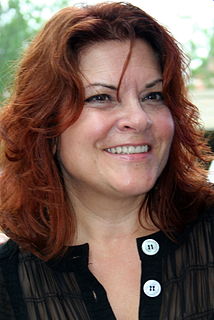A Quote by Christopher Shays
We knew shortly after the war that our troops were becoming ill.
Related Quotes
I will never say, 'support the troops.' I don't believe in the validity of that statement. People say, 'I don't support the war, I support the troops' as though you can actually separate the two. You cannot; the troops are a part of the war, they have become the war and there is no valid dissection of the two. Other people shout with glaring eyes that we should give up our politics, give up our political affiliations in favor of 'just supporting the troops.' I wish everything were that easy.
I want the marginality to come into the center. This is the thing I was conscious of growing up, when I later lived in England. I saw all these war movies that came out shortly after the war, and they were all about the war being fought by Englishmen or Americans, there were no other "allies" in it - from India or Australia, etc.
Every single war that you see go down is illegal. They're breaking the Geneva Convention, and they're breakin' all kinds of sh*t they ain't supposed to be. All these soldiers that's dyin', every talkin' about, "Support our troops, support our troops," yeah we support our troops, but what are they fightin' for? Let's support 'em for the right reason. Let's tell our troops the truth, and maybe they wouldn't be out there fightin' these wars, because there are a lot of these troops that don't even wanna be out there if you talk to them.
As Commander in Chief, I will maintain the strongest military in the world, keep faith with our troops and go after those who would do us harm. But after a decade of war, I think we all recognize we've got to do some nation building here at home, rebuilding our roads, our bridges and especially caring for our Veterans who sacrificed so much for our freedom.
I was influenced by the political environment of our country that has just gained freedom from British colonialism. And the seminal figures in that environment were Mahatma Gandhi, who had been assassinated shortly after I was born, but nevertheless dominated the collective psyche of the country. And of course there were other statesmen who were very much part of the culture we knew as well as looked upon by society as leaders, and mentors, and people that inspires us to have a vision for idealism.
I think about my education sometimes. I went to the University of Chicago for awhile after the Second World War. I was a student in the Department of Anthropology. At that time they were teaching that there was absolutely no difference between anybody. They may be teaching that still. Another thing they taught was that no one was ridiculous or bad or disgusting. Shortly before my father died, he said to me, ‘You know – you never wrote a story with a villain in it.’ I told him that was one of the things I learned in college after the war.
During my childhood and teenage years, everything I knew was at war. My mother and father were at war. My sister and I were at war. I was at war with my atypical nature, desperately trying to fit in and be normal. Even my genes were at war - the cool Swiss-German side versus the hot-headed Corsican.
There used to be the Soviet Union and the Warsaw Pact. There used to be Soviet troops in the GDR. And we must honestly admit that they were occupation troops, which remained in Germany after WWII under the guise of allied troops. Now these occupation troops are gone, the Soviet Union has collapsed, and the Warsaw Pact is no more. There is no Soviet threat, but NATO and U.S. troops are still in Europe. What for?
He [Johnny Cash] was so fragile. We invaded Iraq in March, and he died in September. And because his health was so fragile, he couldn't take the controversy of making a public statement against the war. He knew that people were rabid. They attacked me mercilessly after I did the press conference with Musicians United to Win Without War. He knew that he couldn't tolerate that.
You know, the truth is that right after 9/11, I had a (flag) pin. Shortly after 9/11, particularly because as we're talking about the Iraq war, that became a substitute for, I think, true patriotism, which is speaking out on issues that are of importance to our national security, I decided I won't wear that pin on my chest.
I looked back on the roaring Twenties - with its jazz, 'Great Gatsby,' and the pre-Code films - as a party I had somehow managed to miss. After World War Two, I expected something similar, a return to the period after the first war, but when the skirt lengths went down instead of up, I knew we were in big trouble.































